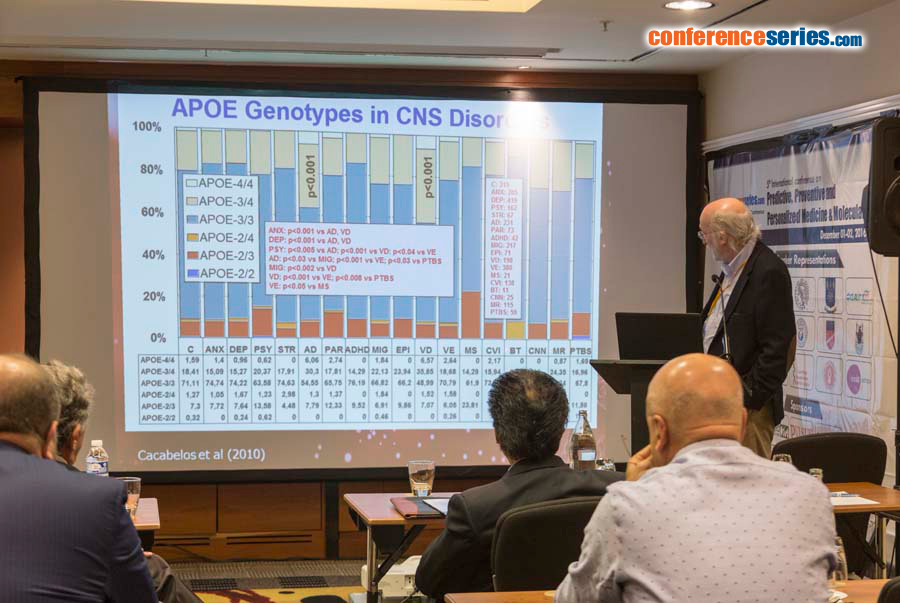
Ramón Cacabelos
Euro Espes Biomedical Research Center, Spain
Title: Pharmacogenetics of Alzheimer’s disease: the critical role of the APOE-TOMM40 region
Biography
Biography: Ramón Cacabelos
Abstract
Anti-dementia drugs are not cost-effective and less than 20% of the patients respond to conventional drugs. Pharmacogenetics accounts for 60-90% variability in pharmacokinetics and pharmacodynamics. The genes involved in the pharmacogenomic response to drugs in Alzheimer’s disease (AD) fall into five major categories: (i) pathogenic genes; (ii) mechanistic genes; (iii) metabolic genes; (iv) transporter genes; and (v) pleiotropic genes.
Among pathogenic genes, APOE (19q13.2) is the most prevalent gene as a risk factor for AD, especially the APOE-4 allele. Adjacent to the APOE gene is the TOMM40 locus. A poly T repeat in an intronic polymorphism (rs10524523)(intron 6) in the TOMM40 gene, which encodes an outer mitochondrial membrane translocase involved in the transport of Aβ and other proteins into mitochondria, has been implicated in AD, and APOE-TOMM40 genotypes have been shown to modify disease risk and age at onset of symptoms.
Taking the APOE-TOMM40 region as reference locus, pharmacogenetics studies have revealed the following: (i) APOE-4 carriers are the worst responders and APOE-3 carriers are the best responders to conventional treatments. (ii) TOMM40 poly T-S/S carriers are the best responders, VL/VL and S/VL carriers are intermediate responders, and L/L carriers are the worst responders to treatment. (iii) Patients harboring a large (L) number of poly T repeats in intron 6 of the TOMM40 gene (L/L or S/L genotypes) in haplotypes associated with APOE-4 are the worst responders to treatment. (iv) Patients with short (S) TOMM40 poly T variants (S/S genotype), and to a lesser extent S/VL and VL/VL carriers, in haplotypes with APOE-3 are the best responders to treatment. (v) In 100% of the cases, the L/L genotype is exclusively associated with the APOE-4/4 genotype, and this haplotype (4/4-L/L) is probably responsible for early onset of the disease, a faster cognitive decline, and a poor response to different treatments
Speaker Presentations
Speaker PPTs Click Here







